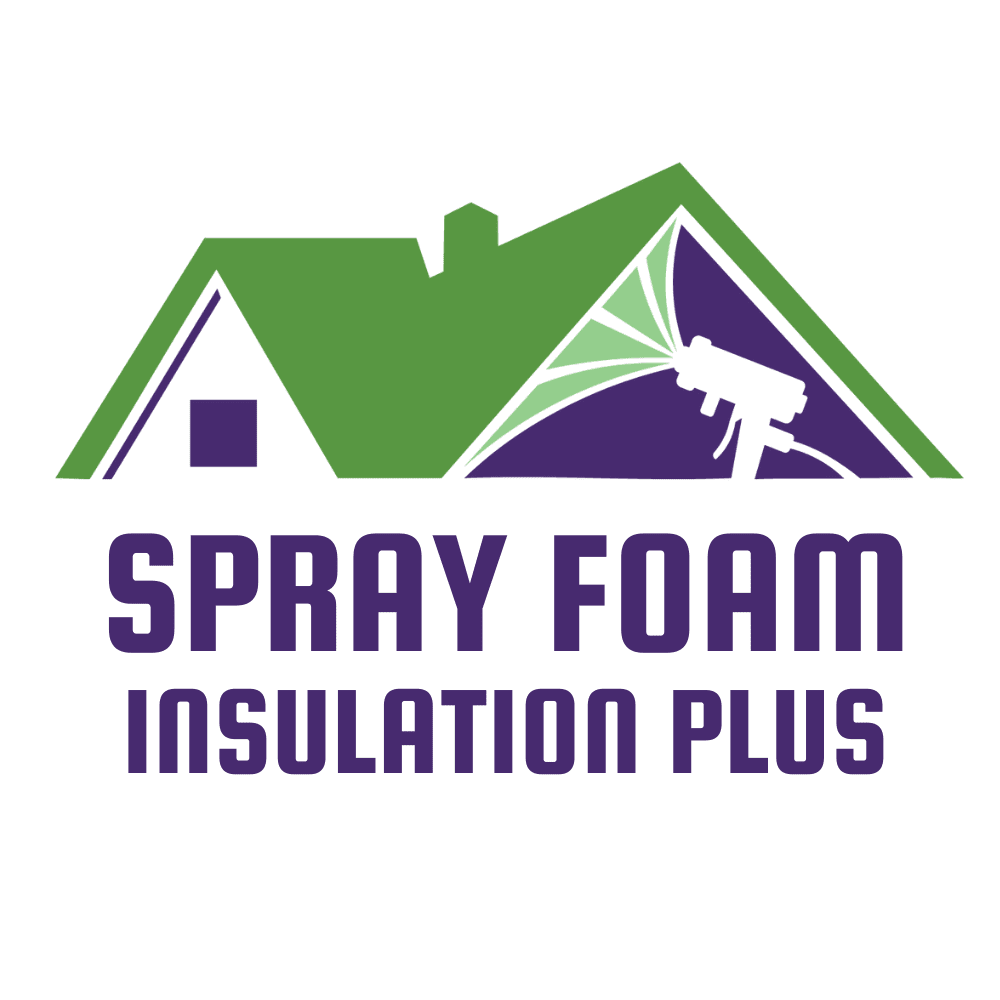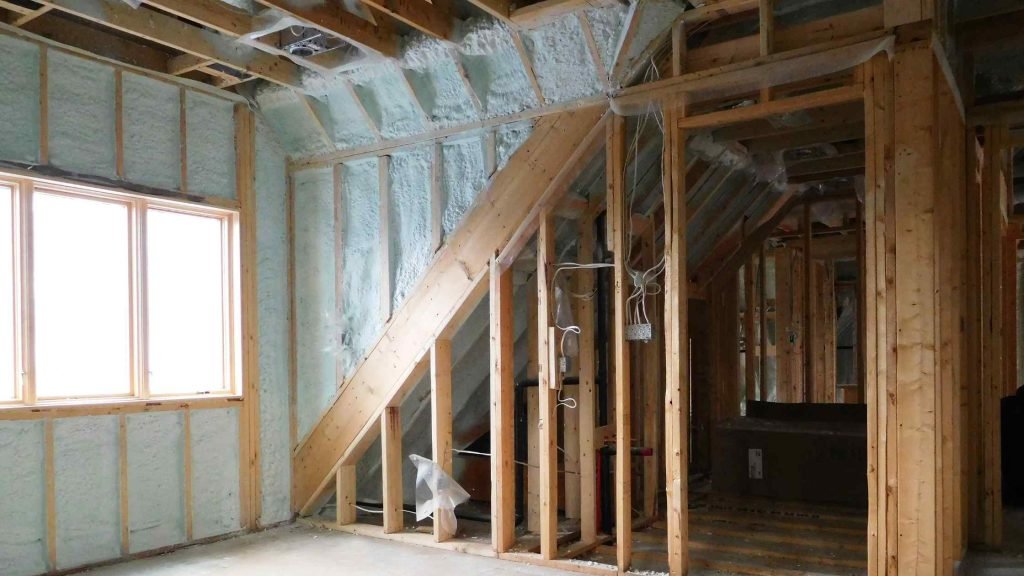
Insulation Plus


Spray Foam Insulation in Plymouth by Spray Foam Insulation Plus
We Provide the Best Spray Foam Insulation Plymouth MN
Welcome to Spray Foam Insulation Plus, your trusted partner for premium solutions in spray foam insulation Plymouth MN, and the surrounding areas. With over 15 years of experience, we are your go-to insulation contractor for all your residential and commercial needs. Our expertise in spray foam insulation ensures that your property remains energy-efficient, comfortable, and protected year-round.
Our commitment to excellence is reflected in our comprehensive services, including attic insulation, waterproofing, and more. We understand the importance of energy efficiency, and our spray foam insulation not only seals air leaks effectively but also provides mold-resistant properties, enhancing indoor air quality. Say goodbye to cold drafts and soaring energy bills as our long-lasting and durable insulation solutions control temperatures and reduce costs. Whether you’re a property owner looking to enhance your home’s comfort or a contractor seeking reliable insulation services, Spray Foam Insulation Plus has you covered. Contact us today for an estimate, and experience the benefits of our top-notch insulation services.
Spray Foam Insulation Plymouth MN | Our Insulation Services:

Spray Foam Insulation Plymouth MN
At Spray Foam Insulation Plus, we take pride in offering an extensive range of top-tier services for spray foam insulation Plymouth MN, and beyond. With over 15 years of experience, we’ve established ourselves as the go-to insulation contractor for both residential and commercial projects. Our core service, spray foam insulation, is designed to provide unmatched energy efficiency, making your space more comfortable while reducing those costly energy bills.
Our commitment to quality doesn’t stop there. We specialize in attic insulation, ensuring that your home or business remains well-protected against the elements while maintaining indoor air quality. We take sealing air leaks seriously, preventing unwanted drafts and safeguarding against mold with our mold-resistant insulation. Whether you’re a property owner aiming to enhance comfort and energy savings or a contractor in need of reliable insulation services, Spray Foam Insulation Plus offers a comprehensive solution to meet your needs. Contact us today for an estimate and experience the difference our insulation expertise can make.

Spray Foam Insulation Plymouth MN
At Spray Foam Insulation Plus, we take pride in offering an extensive range of top-tier services for spray foam insulation Plymouth MN, and beyond. With over 15 years of experience, we’ve established ourselves as the go-to insulation contractor for both residential and commercial projects. Our core service, spray foam insulation, is designed to provide unmatched energy efficiency, making your space more comfortable while reducing those costly energy bills.
Our commitment to quality doesn’t stop there. We specialize in attic insulation, ensuring that your home or business remains well-protected against the elements while maintaining indoor air quality. We take sealing air leaks seriously, preventing unwanted drafts and safeguarding against mold with our mold-resistant insulation. Whether you’re a property owner aiming to enhance comfort and energy savings or a contractor in need of reliable insulation services, Spray Foam Insulation Plus offers a comprehensive solution to meet your needs. Contact us today for an estimate and experience the difference our insulation expertise can make.
Benefits of Our Insulation Services:
Attic Insulation Minneapolis MN
Choosing Spray Foam Insulation Plus means unlocking a multitude of benefits that can transform your property with spray foam insulation Plymouth MN, and the surrounding areas. With our extensive 15 years of experience, our insulation services go beyond the norm, offering unparalleled advantages. We are your trusted insulation contractor, specializing in spray foam insulation that’s not only energy-efficient but also mold-resistant, enhancing indoor air quality and providing long-lasting durability.
Our expertise in sealing air leaks and preventing drafts ensures your space remains comfortable while reducing energy bills, offering a sound and efficient solution for property owners and contractors alike. By choosing us, you take control of temperatures, maintaining ideal conditions year-round, and benefit from insulation rebates that sweeten the deal even more. Whether you require attic spray foam or waterproofing solutions, Spray Foam Insulation Plus delivers results that are a cut above the rest, ensuring your space remains well-insulated and energy-efficient for years to come.

Contact Spray Foam Insulation Plus
We are focused on providing our clients with the highest
level of quality and excellent customer support.
Schedule an Estimate

Contact Spray Foam Insulation Plus
We are focused on providing our clients with the highest
level of quality and excellent customer support.
Schedule an Estimate

Frequently Asked Questions | Attic Insulation Minneapolis MN
Discover the Benefits of a Local Contractor for Attic Insulation Minneapolis MN
Indeed, spray foam insulation is a highly worthwhile investment for homeowners and property owners in Plymouth MN, and beyond. At Spray Foam Insulation Plus, we’ve witnessed the numerous benefits it offers firsthand. Our spray foam insulation provides unparalleled energy efficiency, sealing even the tiniest air leaks and preventing cold drafts, which leads to significantly lower energy bills over time. Moreover, it’s mold-resistant, enhances indoor air quality, and adds durability to your property. With our 15 years of experience in the industry, we can confidently say that spray foam insulation not only controls temperatures effectively but also adds value to your property. It’s a long-lasting solution that not only pays for itself in energy savings but also ensures year-round comfort and protection against the elements.
Absolutely, spray foam insulation Plymouth MN is an exceptional choice for keeping water out of your property. At Spray Foam Insulation Plus, our insulation experts provide top-notch waterproofing solutions alongside our premium insulation services. Our spray foam insulation not only seals your space against air leaks and drafts but also acts as a barrier against moisture, making it an ideal choice for preventing water intrusion. This unique characteristic ensures that your property remains well-insulated, energy-efficient, and protected against the elements, guaranteeing a long-lasting, durable solution that enhances your indoor comfort and safeguards your investment.
For top-notch services for spray foam insulation Plymouth MN and the surrounding areas, look no further than Spray Foam Insulation Plus. As your trusted insulation contractor with 15 years of industry experience, we specialize in residential spray foam insulation that not only boosts energy efficiency but also enhances indoor air quality and provides long-lasting, durable protection for your property. Our expert team ensures your home remains comfortable year-round, effectively controlling temperatures, preventing air leaks, and eliminating cold drafts. Plus, we offer estimates and insulation rebates to help you make the most cost-effective choice for your property. Whether you’re a property owner or contractor, we’re here to deliver the benefits of spray foam insulation to you, backed by our commitment to excellence in every project.
The cost of attic insulation in Plymouth, MN depends on various factors, including the type of insulation material chosen, the size of your attic, and the specific needs of your home. At Spray Foam Insulation Plus, we assess these factors to provide you with a personalized estimate tailored to your requirements.
Yes, there are often rebates and incentives available for homeowners looking to improve their insulation. As an experienced insulation company in Plymouth, we stay updated on these programs and will help you explore any available rebates or incentives that can contribute to reducing your overall insulation costs.
Why should you insulate your home? There are several reasons why you should insulate your home this winter; let us look at some of them below:
Cold House
Without insulation, your home will get very cold, very quickly. The walls and especially the floors will get extremely cold to the touch. Even the furniture will get cold. The chair you sit in, the bed you lay on, and the floor you walk on all will be cold. It will become difficult to get cozy and comfortable in the house, which will cause chronic discomfort all winter. On the other hand, insulation will keep your home warm and cozy.
Freezing Pipes
Another very critical reason you need to consider is your house’s pipelines. The water line pipes in your home will start to freeze if the place is too cold without insulation. Frozen pipes have the danger of bursting, which can cause significant damage to your house. If that happens, fixing the damage will be very costly and inconvenient. Insulation will keep your pipes below freezing temperature so that they do not freeze and burst.
Pests
Insulation will prevent pests from making a home inside your home. The lack of proper insulation in the house will result in pests living in it. This is because, with the lack of insulation, it is easy for pests to find a way inside the house. However, if you do proper insulation of your house, pests will not be able to find even a tiny opening to come inside, and you will not have to deal with any pest problems.
Air Quality
Ineffective and ruined insulation can cause a lot of damage to your home, especially your home’s air quality. This is because mold and bacteria formed due to this have a very negative effect on the air quality of your house. Bad air means an unhealthy environment, and no one wants an unhealthy environment in their home. This is why it is best to insulate your home correctly so that you have a healthy environment with safe air.
Roof
An uninsulated roof is one of the worst things in winter. This is because the warmth of the house quickly escapes through the uninsulated roof. No one wants to lose the warmth of their home in winter. Moreover, insulation also helps in protecting your roof. When the heat escapes through the roof, it temporarily melts the ice, which refreezes and causes the formation of ice dams.
Ice dams cause damage to your roofs; therefore, it is best to prevent that from happening because you do not want to be fixing your roof in cold winters; it is costly too. Lucky for you, insulation can help prevent that and keep your house warm!
For more information about our spray foam insulation services, feel free to contact Spray Foam Insulation Plus, the best insulation contractors in Plymouth MN, today.
Spray Foam Insulation Plus is a certified spray foam insulation contractor in Plymouth by the Building Performance Institute and is preferred by Xcel Energy and Centerpoint Energy. We conduct energy audits on properties to identify any gaps or leaks in insulation, as well as make recommendations on what should be done about it.
Air sealing and insulation can help you save money on heating and cooling bills by making your home more energy-efficient. If you decide to have us insulate and/or air-seal your home or property, your energy companies will reward you by paying for part of the project. This means that you will be able to save money on new insulation AND on your monthly energy bills.
If you’re interested in having an energy audit done for your home or property with a spray foam insulation contractor in Plymouth, contact us today. We’ll be happy to schedule an appointment for you









